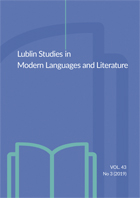The role of education in the discourses of the EU and of alternative schooling institutions
The role of education in the discourses of the EU and of alternative schooling institutions
Author(s): Mehdi GaliereSubject(s): Language studies, Foreign languages learning, Applied Linguistics, School education, State/Government and Education, EU-Accession / EU-DEvelopment, Pedagogy
Published by: Wydawnictwo Naukowe Uniwersytetu Marii Curie-Sklodowskiej
Keywords: education; critical pedagogy; critical discourse analysis; democratic education; Europe 2020;
Summary/Abstract: The paper discusses two different approaches to education and the way they are embedded in different discourses on education. The market-oriented approach is compared to the democratic approach. In the paper, the discourse of the European Union is considered as an example of hegemonic neoliberal discourse while the discourse produced by the Summerhill School and the Self-Managed High School of Paris is addressed as a counterhegemonic discourse. Drawing on Critical Discourse Studies scholars such as Norman Fairclough, and critical pedagogic approaches such as Basil Bernstein’s and Paulo Freire’s, it will be shown that the difference in the ways these institutions represent the social world around them have a strong influence on their discourses on what education is for and should be like. For the European Union, education is a utilitarian means facilitating the adaptation of society to the economic system through the acquisition of predefined skills, while for the democratic approach it is rather a practice developing common decision-making and empowerment through an understanding of the world as a whole.
Journal: Lublin Studies in Modern Languages and Literature
- Issue Year: 43/2019
- Issue No: 3
- Page Range: 13-23
- Page Count: 11
- Language: English

